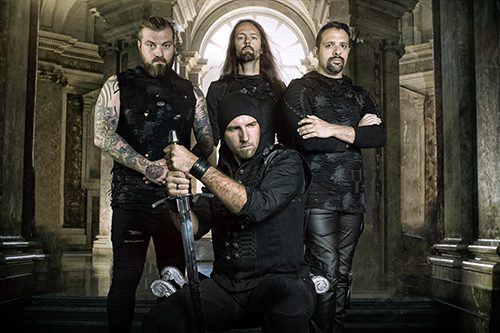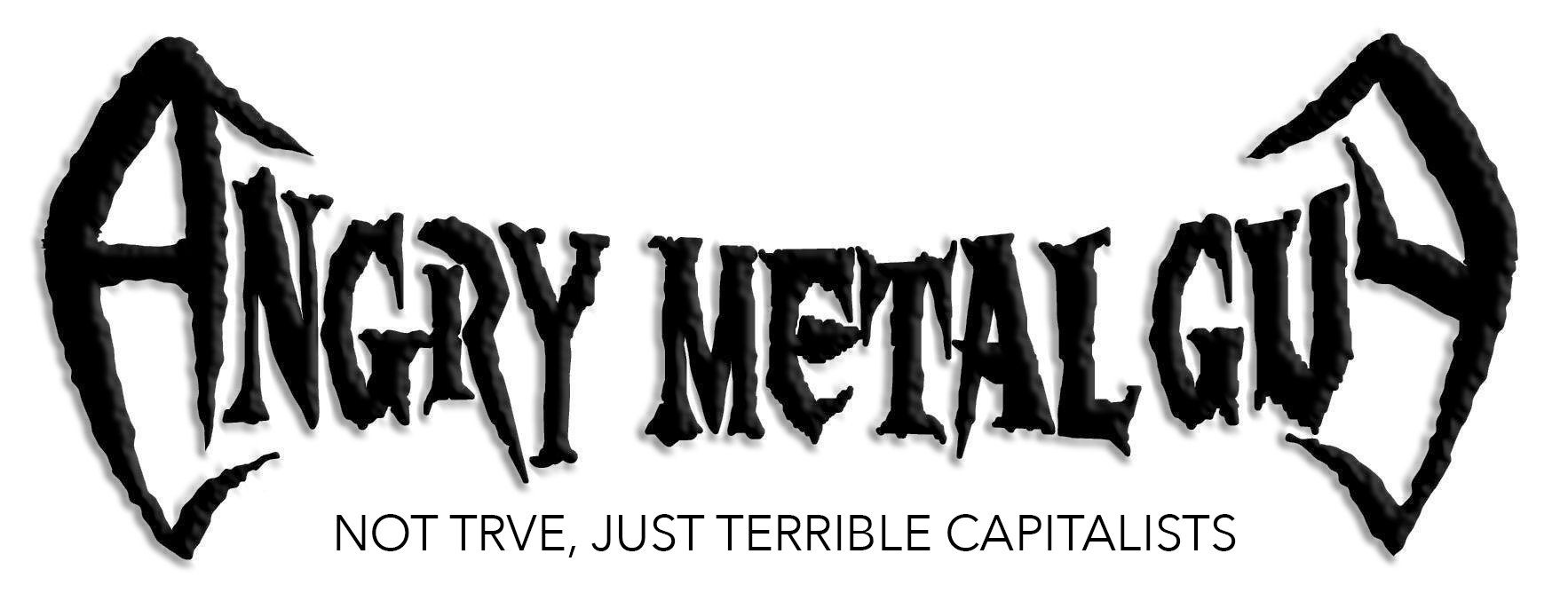 In recent times, I’ve gained a reputation for not liking power metal.1 This is simply inaccurate. It’s not that I don’t like power metal as a genre, it’s more that I have rather specific tastes. Serenity is an Austrian symphonic power metal band that has met my standards with 2016’s Codex Atlanticus. That record was solid, yes, but I was surprised by the band’s newest record landing in my inbox a year after its release. More concerning than surprising, however, is that the record is a concept album about Richard the Lion-Hearted. A solid record a year later is an ask for most bands, but do-able. A solid concept album in the same time is simply a reach. So, is Serenity’s Lionheart a good album? And, more importantly, is it a good concept album?
In recent times, I’ve gained a reputation for not liking power metal.1 This is simply inaccurate. It’s not that I don’t like power metal as a genre, it’s more that I have rather specific tastes. Serenity is an Austrian symphonic power metal band that has met my standards with 2016’s Codex Atlanticus. That record was solid, yes, but I was surprised by the band’s newest record landing in my inbox a year after its release. More concerning than surprising, however, is that the record is a concept album about Richard the Lion-Hearted. A solid record a year later is an ask for most bands, but do-able. A solid concept album in the same time is simply a reach. So, is Serenity’s Lionheart a good album? And, more importantly, is it a good concept album?
In the review of Sabaton’s Carolus Rex, the reviewer at Sweden’s largest newspaper opened the review with the statement: “[o]ne always takes a stand when choosing the history one writes” [translated freely].2 Serenity chose to write about Richard I, who one historian described as “a bad son, a bad husband, and a bad king, but a gallant and splendid soldier.” Also known as Richard the Lion-Hearted, he is famous for leading the Third Crusade between 1191-1193. Googling Richard I for three minutes will show that he, like all regents and generals, was a complicated man who did complicated things for complicated reasons. But such a nuanced picture of the character is notable in its absence. Missing, for example, is a song about the massacre at Ayyadieh, where Richard I lion-heartedly executed 2,700 people—some accounts saying it was closer to 3,000, including women and children—because Saladin would not pay a ransom. Instead, Lionheart relies heavily on messages of unity and a lionization (see what I did there?) of Richard I. While “Massacre at Ayyadieh (I Executed 2,700 People Because Saladin Would Not Pay Me a Ransom)” makes a less inspiring song than “United” or “Stand and Fight,” it also makes a crucial point: who would write an uncritical concept album about The Crusades in 2017?

Of course, such an oversight may simply be a consequence of genre tropes that define Serenity’s musical goal. Unlike Sabaton’s Carolus Rex,3 the band seems patently uninterested in writing about the case with anything resembling historical accuracy. Instead, Lionheart is written with an eye to the impact of uplifting choruses, epic orchestrations, and melodrama. With songs like “Eternal Victory,” “United,” and “Stand and Fight,” the band is definitely resting on the trend of positivity bias found in Eurovision entries and, apparently, power metal. It lacks credibility that Richard I dragging the 4th sons of wealthy families to the Middle East to fight for the “Holy Land” actually lit “passion in the hearts” [“Eternal Victory”] of crusaders.4 And it is baldly inaccurate to portray anyone as dying for their “country” in 1191.5 Serenity is either blissfully unaware or just such positive thinkers that inconvenient details like “truth” or “the understanding of history as a question of perspective” undermine the point of making power metal this gargantuan to begin with!
And if any fans or representatives for the band or label even made it this far, they’ll be pleased to hear that Lionheart doesn’t disappoint musically. Throughout, Serenity demonstrates their mastery of composing catchy, entertaining and addictive songs. The orchestras are well-balanced bombast, which girds otherwise simple, riff-heavy songs. But the center of attention—front and center in the mix, anyway—is Georg Neuheuser. His voice is powerful, though surprisingly similar to Tony Kakko on tracks like “Stand and Fight,” and he charges through these songs with the reckless abandon of his ilk. While Neuheuser’s tone is not reedy like Gloryhammer’s Thomas Winkler, his enthusiasm and diction are remarkably similar. These make for an unforgettable delivery. His voice is best used when it’s a tool for carrying the band’s anthemic choruses (like “Empire” or “Eternal Victory”), but he also does a moody duet with Katja Moslehner on “Heaven,” and threatens emotional expressiveness on “My Fantasy” and “The Final Crusade.”

Neuheuser’s performance stands out because the rest of Serenity is solid, workmanlike, and subordinated to the band’s style. Christian Hermsdörfer’s guitars are solid, with good riffing and solos, while the rhythm section—bassist Fabio D’Amore and drummer Andreas Schipflinger—holds down the low-end admirably. Like other orchestral metal bands, individual performances don’t stand out, and when packaged in Jan Vacik’s production, it pretty much sounds precisely how one would expect; extremely compact and loud, with edited drums and barely audible bass. That said, Vacik’s work on balancing the band against the orchestrations is top-notch. The interplay of different elements is excellent, and particularly on tracks like “The Fortress (of Blood and Sand)” where a great groove meets the melodic orchestrations, Vacik’s polished mix shines.
In totality, Lionheart is a good record, but a bad concept record. I love some, and like almost all, of these songs—the aforementioned “The Fortress (of Blood and Sand)” being my personal highlight, featuring a Double Harmonic scale and Saladin’s equally un-problematized perspective—and when the band hits their groove they are at their very best. If you, like the band, give no shits about historical accuracy or questions of the academic pursuit of the study of history, then there’s not much here to get frustrated with. If, on the other hand, you’re a stickler for details and find this album’s contents slightly disturbing, don’t you worry your pedantic little head about it: after hearing a few of these choruses, you’ll forget about your complaints and start to bang your head. Lionheart is, first and foremost, a good power metal record.
Rating: Good!
DR: Unknown | Format Reviewed: Stream
Label: Napalm Records
Websites: serenity-band.com | facebook.com/serenityaustria
Release Date: October 27th, 2017

















